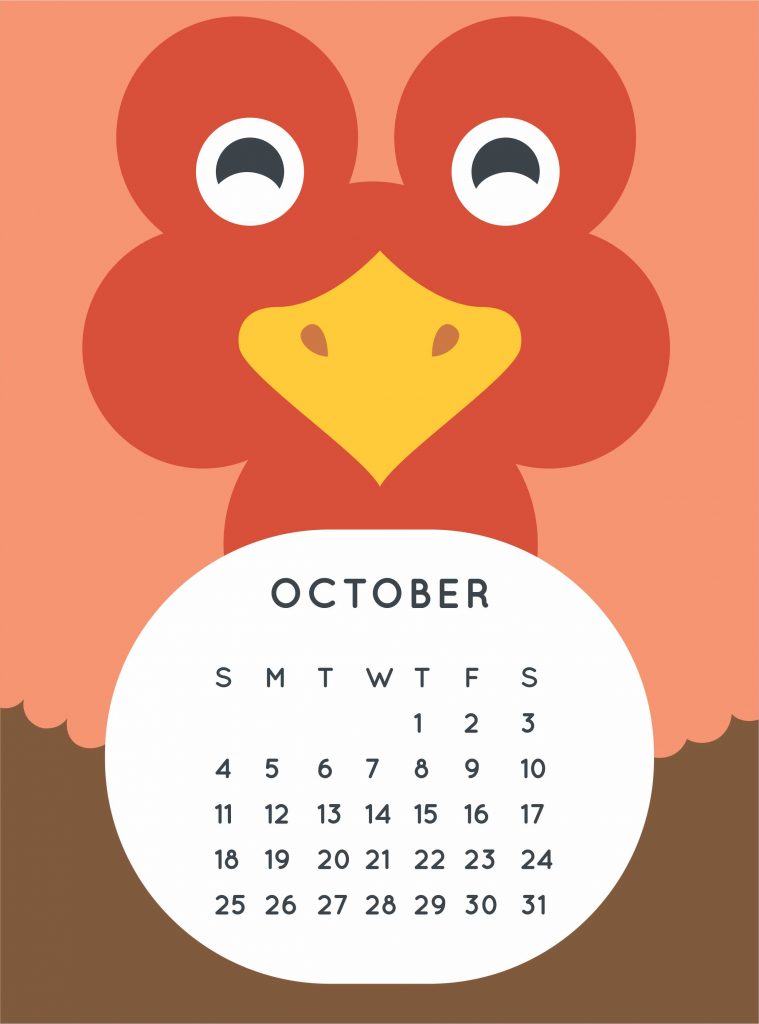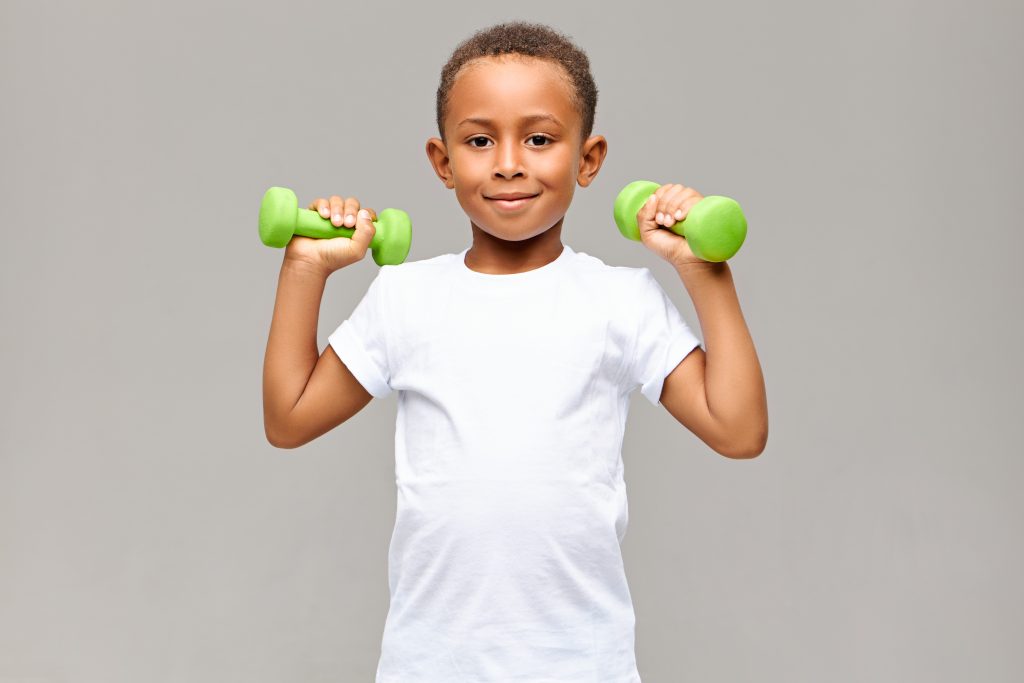
MENTAL HEALTH AWARENESS MONTH
G Haux, Head of Pre-primary
October
O hushed October morning mild,
Thy leaves have ripened to the fall;
To-morrow’s wind, if it be wild,
Should waste them all.
Robert Frost
Oktobermaand
Dit is die maand Oktober,
die mooiste, mooiste maand!
Dan is die dag so helder,
so groen is elke aand,
so blou en sonder wolke
die hemel heerlik bo,
So blomtuin-vol van kleure
die asvaal ou Karoo.
C. Louis Leipoldt
The contrast in the mood of excerpts of these two well-known poems about October, from the northern and southern hemisphere, somewhat reveal the depth and variety of feelings we deal with in life. The month of October has been declared Mental Health Awareness month with the objective of not only educating the public about mental health but also to reduce the stigma and discrimination that people with mental illness are often subjected to. It is so wonderful that we can take all our cares to the Lord and that we can look after the bodies He has given us. Here are some useful tips to stay physically, mentally and emotionally healthy and lay a solid foundation for our children’s health:
Eat a regularly healthy diet with lots of fruits, vegetables, whole grains, lean protein, and low‐fat dairy
Be physically active every day, even if it is only a few 10-minute walks throughout the day.
Set aside time for fun and relaxation, which could mean spending an afternoon playing outside with your kids or curling up on a couch to read a book.
Stay connected with friends and family, because having a strong social support network is key to maintaining a happy, healthy mind-set.
Mental health is just as important as our physical health, so it is key to understand the resources available as you seek to improve this aspect of your health. The Bible gives us the best advice in Colossians 3:16 “Let the word of Christ dwell in you richly, teaching and admonishing one another in all wisdom, singing psalms and hymns and spiritual songs, with thankfulness in your hearts to God.”
Sources: http://www.dirco.gov.za/events/index.htm
https://www.gov.za/mental-health-awareness-month
https://www.dbnl.org/tekst/leip001vers01_01/leip001vers01_01_0004.php
https://poets.org/poem/octoberhttps://germancentre.org/docs/October_is_Depression_and_Mental_Health_Awareness_Month.pdf

THE FINER PHYSICAL SKILLS
L Stegen, Head of Foundation Phase
In the previous article, the importance of developing gross motor skills in young children was discussed. Ways of encouraging young children to engage in physical activities that develop these skills were mentioned, as well as the link between these activities and some other essential skills that are acquired during physical activities and games.
In this article, a second class of motor skills that involve small muscle coordination will be discussed. The development of these fine manipulative skills generally begin after the young child has had some practice in controlling their large muscle movements. As an example, a baby needs to learn to crawl (gross motor movement) which then helps to strengthen the muscles in the hand needed for fine motor tasks.
Because children are unique, their bodies mature at different times. Thus, there is a great deal of variation in the development timeline of gross and fine motor skills among young children. Parents have the advantage of knowing their own child’s level of physical growth and how they perceive the world around them (i.e. how they use their senses) and will have a better understanding of what activities their child would benefit from at an particular time.
Fine motor skills involve the use of small muscles in the arms, hands and fingers and involves hand-eye coordination. In very young children, components of fine motor skills would be present when they are learning how to grasp and manipulate objects, use both hands for a task, and use only the thumb and one finger to pick something up rather than the whole hand. Here are further examples of fine motor skills, placed in order of development:
- Squeezing objects
- Putting small objects in a container
- Eating finger foods
- Clapping hands
- Scooping objects with a spoon or a shovel
- Waving goodbye
- Building a tower three to four blocks high
- Holding a crayon with fingertips and thumb
- Turning doorknobs
- Washing hands independently
- Getting dressed without help
- Cutting out a circle
- Tying shoe laces
- Grasping a pencil correctly
- Using a knife to cut food
- Building a small structure with blocks
Parents can encourage their babies to improve their fine motor skills by letting them lie under a play gym, using rattles and by moving colourful toys around for their babies to follow the toys with their eyes. To help toddlers develop fine motor skills, parents can encourage them to pick up objects using tongs, to build with blocks and to do craft projects involving cutting, colouring, painting and pasting. Parents can also provide their toddlers with playdough, sand, sponges and water toys.
Besides developing the necessary fine-motor skills that they will need later in life, all the interaction between parents and their child during the above activities will expand the child’s vocabulary and enlarge its conceptual understanding of space and movement. Spending quality time with their child in this way will further encourage a healthy two-way relationship of trust and respect, which is vital for a happy childhood.
Sources: Department for Children, Education, Lifelong Learning and Skills. (2008). Physical Development. Retrieved from Welsh Assembly Government: https://dera.ioe.ac.uk/15790/2/physicaldeve_Redacted.pdf
Gonzales, S. L., Alvarez, V., & Nelson, E. L. (2019, December 3). Do Gross and Fine Motor Skills Differentially Contribute to Language Outcomes? A Systematic Review. Retrieved from frontiers in Psychology: https://www.frontiersin.org/articles/10.3389/fpsyg.2019.02670/full
Mauro, T. (2021, April 3). Fine and Gross Motor Skills in Children. Retrieved from verywellfamily.com: https://www.verywellfamily.com/what-are-motor-skills-3107058#fine-motor-skills
Swift, T. (n.d.). Promoting Physical Development. Retrieved from teach EARLY YEARS: https://www.teachearlyyears.com/learning-and-development/view/promoting-physical-development
Virtual Lab School. (n.d.). Physical Development: An Introduction. Retrieved from Virtual Lab School: https://www.virtuallabschool.org/preschool/physical-development/lesson-1

LEARNING FOR LIFE
E Gouws, Head of Intermediate Phase
Do children benefit from being at school? Yes, they do! They learn the traditional reading, writing and arithmetic but they learn much, much more in life skills. Here are 8 important life skills children learn, simply by being at school.
1. Teamwork is an important part of real life. Group work teaches learners how to motivate and encourage others and how to fit into a team. Team work teaches learners how to understand people, see things as they would see them: their likes, dislikes, feelings and thoughts. It teaches them to consider the thoughts and feelings of others. Understanding how to work as part of a team is crucial for life.
2. Budgeting Children must be given the opportunity to handle money at school and manage a small budget. Children must understand the difference between needs and wants, and when they can afford to make purchases. Budgeting can be learned the hard or the easy way but it is a vital life skill.
3. Personal strengths and motivation Children learn to identify their personal strengths and how to motivate themselves during their school days and this will remain important throughout life. Children must be motivated to get up for school every day, do their chores and even socialize. This also applies to things they do not enjoy doing but are important.
4. Resourcefulness This is an important skill. When a child is in a sticky situation that he/she needs to get out of, understanding of how things work or how to get help by means other than their own is something that will be used in real life.
5. Organisation At school there will be many duties, classes and small tasks to complete that may not fit into the day, children must learn to prioritise tasks by how important they are. They might have to think of new ways to work in order get everything done on time, while also ensuring that they are a high standard.
6. Thinking differently Mixing with children who have different thought processes and outlooks, means there are so many opportunities for children to learn new ways of thinking. An open mind is key to learning new skills. Children must be taught different ways to think. If they can think creatively, they will be more adaptable and open to new ways of working and completing tasks.
7. Taking on challenges Children must learn how to manage stressful experiences proactively. Children who take on challenges instead of avoiding or simply coping with them achieve better in school and in life.
8. Speed reading How much more work could be accomplished if the required reading was completed in one-third of the time? Or even half the time? Even slight improvements in reading time can save a lot of time long term.
https://www.mindinthemaking.org/life-skills
https://blog.futurefocusedlearning.net/10-beneficial-lifelong-learning-skills
https://www.skillsyouneed.com/rhubarb/skills-from-school.html

INSTILLING EXCELLENCE
D van Straten, Head of Senior Phase
How would you go about instilling excellence in your child? And academic excellence?
The answers to these questions are likely to differ substantially depending on each person’s world view, background and purpose in life. However, I recently read an interesting comment by someone: Excellence is the result of caring about what we do, and of putting our very best effort into what we care about.
According to this person’s view there appears to be a correlation between excellence, trying our best and caring about something. Therefore, if we want to be excellent in something it will also require effort and care.
Keeping this mind, it is interesting to observe learners’ ability to look after, and care for their belongings (notes, files, books, etc) at school. As teachers one can often make a distinction between children that care for their work by being neat and organised and those that do so to a lesser extent.
Although this is something that we assist learners with, being well organised, caring and neat is a skill that should not only be taught at school, but also at home: keeping my toys neat and organised, making my bed, keeping my room tidy, being on time for mealtimes, getting up at a reasonable time in the morning…
When a child has organisation difficulties, they might also have difficulties with visual and sensory processing, learning, self-care and how they use words and put them together. Therefore, teaching your child to be organised is of utmost importance. Here are a few ideas to assist younger children, which is the best time to instil such skills:
Introduce checklists. Make use of a simple checklist such as “3 things to do before bed”.
Give them chores that involve sorting or categorizing. Emptying the dishwasher, sorting socks or shoes, cleaning out a closet, and other chores that involve pre-planning, making lists, or arranging things.
Establish a routine. Help your child to plan a weekly schedule of activities, which include times for sport, music, etc and homework time. Encourage your child to stick to their homework schedule even when they don’t have homework (they can read or review notes).
Encourage an interest in collecting. If your child has an interest in particular items, encourage them to create and organise a collection. It can be something as simple as leaves or used stamps — anything that they can sort, classify, and arrange.
Sources https://medium.com/@thaariininair/what-does-excellence-mean-to-you-6f2917a508db
https://childdevelopment.com.au/areas-of-concern/organisation/organisation-skills/
https://www.scholastic.com/parents/family-life/social-emotional-learning/social-skills-for-kids/12-ways-to-develop-your-childs-organizational-skills.html

EASING EXAMS
J Sibeko, Head of FET Phase
Exams are here, and we understand that things may seem different this year.
The disruptions caused by lockdown have affected learner’s day-to-day education as well as their exam preparation. With this in mind, here are the top 4 reasons students struggle during exams and the strategies we recommend to relieve the pressure.
1. Lack of study plan and strategy
Problem: Most students lack a plan of not just when and what they’ll study, but most importantly “how” they will study.
Why is this a problem? This can result in procrastination, feelings of anxiousness, and a lack of preparation which may lead to underperformance.
How can parents help? Help them write up a “study formula” that not only includes when and what they’ll study, but how they’ll study as well.
2. Gaps in their knowledge
Problem: Due to illness or sport your child may have missed content throughout the year.
Why is this a problem? Gaps in knowledge lead to a lack of understanding, which can prevent learners from passing or achieving higher marks.
How can parents help? Encourage your child to make sure that they have all the notes needed to study for the exams. If there is a section that your child has missed because of absenteeism, encourage your child to request an extra lesson from the teacher.
3. Not sure how to approach exam questions
Problem: Students may know the information but find it hard to interpret the question and/or aren’t sure how to put their responses in the right language for the marker.
Why is this a problem? The language learners use in their explanations can influence their results. How can you help? Past exam papers are a huge help, but most students don’t use them in the most effective way. After doing the question, they should be closely studying the answers and they should be writing down how to improve their answer.
4. Exam anxiety
Problem: Students often feel very anxious about exams.
Why is this a problem? Anxiety prevents students from performing at their peak.
How can the parents help? Encourage your child to talk to someone about their fears and anxieties. Also, encourage them to be over anxious, but just to do their best, which is good enough.
Source: https://inspirationeducation.co.nz/ncea/5-top-challenges-for-students-going-into-exams/

FEEDBACK THAT AFFIRMS
A du Preez, Academic Head
Do you still remember your anticipation years ago when you entrusted your own school report to your parents every term end? And thereafter came their feedback – feedback that could sometimes heal or hurt, build up or break down.
There is power in the way parents express themselves. The aim of positive feedback is to encourage and to shape (not to be confused with superficial flattery that only nurtures haughtiness).
Rebecca Louick shares the following valuable tips on effective parental feedback:
Pause before you give feedback Reflect on the intent and necessity of your words. Are they true, helpful and kind?
Focus on the HOW The sandwich technique works well: Start and end with something positive and something constructive sandwiched in between.
Make your feedback specific Refer to a specific incident for your child to reflect on. It is difficult for the child to react on a vague comment.
Focus on the process Comment also on the hard work that has led to the child’s success, and on the opportunities to learn from mistakes s/he has made.
Focus on actions, not their personality “Wasn’t what you said a bit rude?” would have a more positive impact on your child than “You are always so rude!”
Model it Show your children how you manage criticism, and they will follow your example.
This last point brings us to the crux of the matter: Children see their parents’ daily reactions to allegations and critique – whether fair or unfair. Consequently, they learn to respond to tough challenges from the way their parents do.
“Let your conversation be always full of grace, seasoned with salt, so that you may know how to answer everyone.” – Col. 4:6
Life Application Bible; NIV.
Louick, R.; 7 Tips to give effective feedback to your Child; 01/10/21
How to Give Positive Feedback to Kids – Big Life Journal
